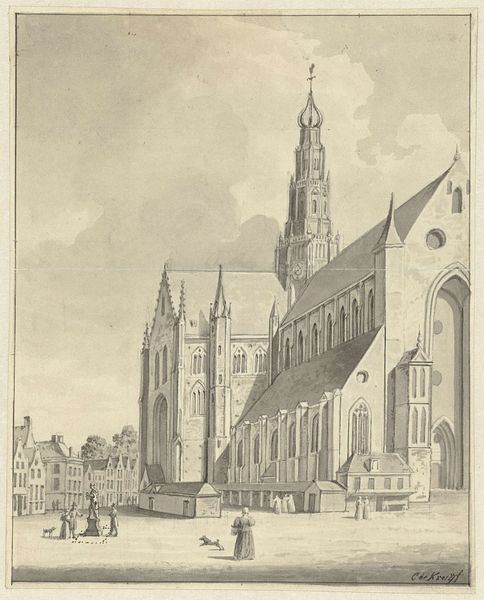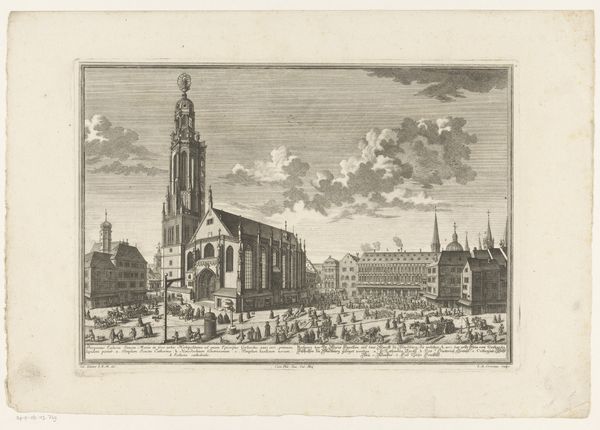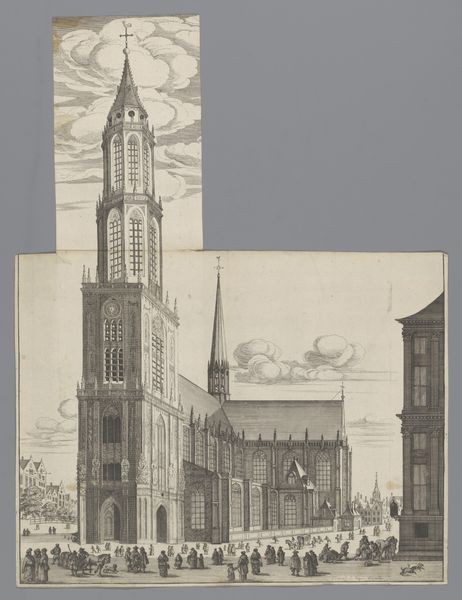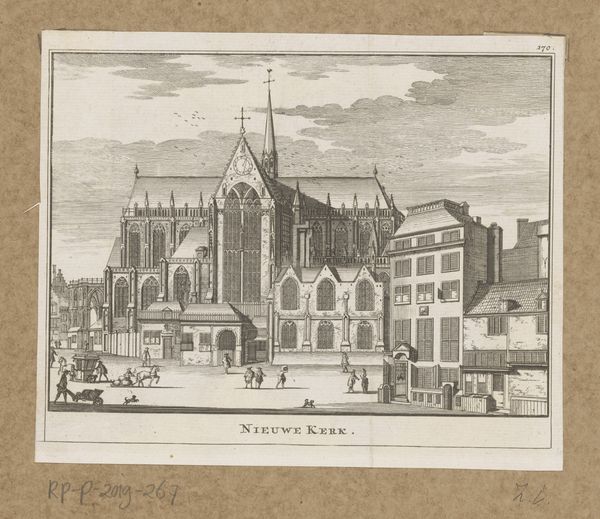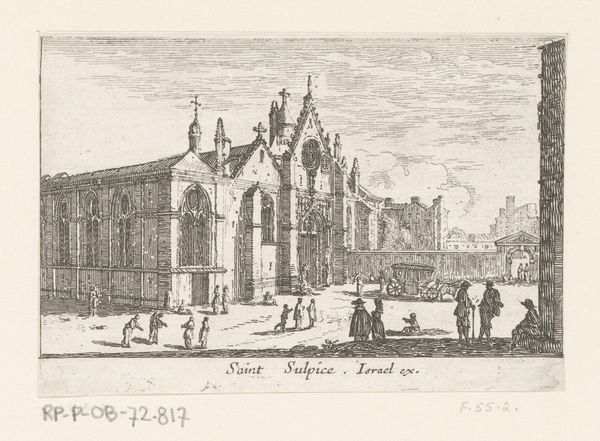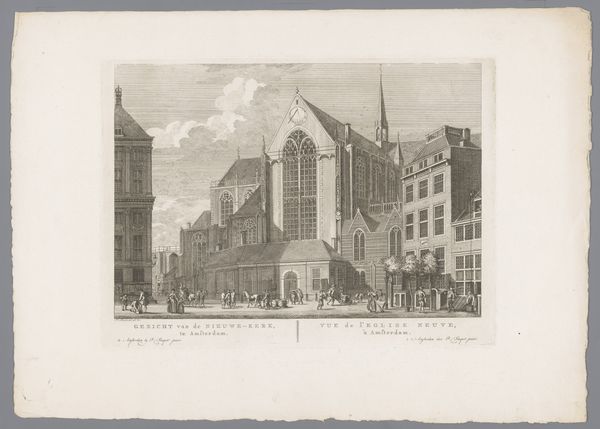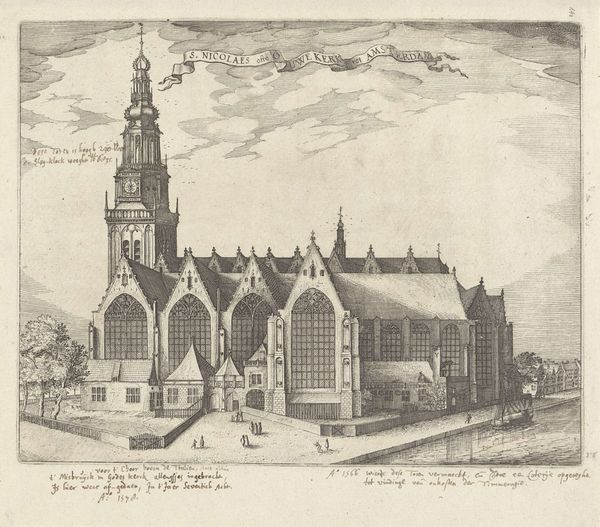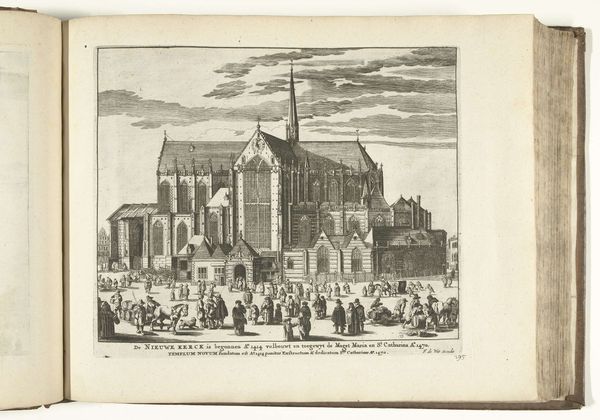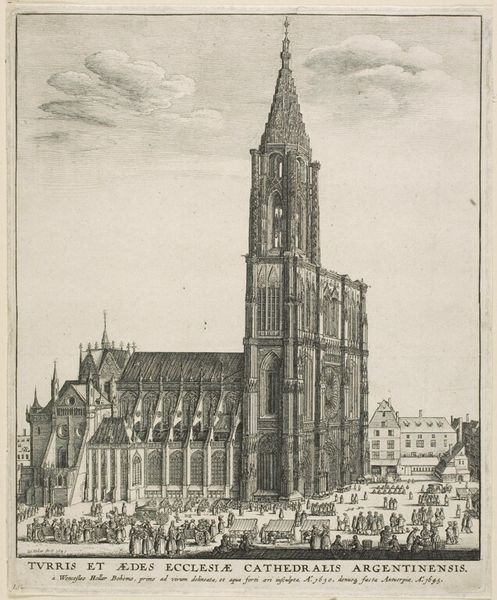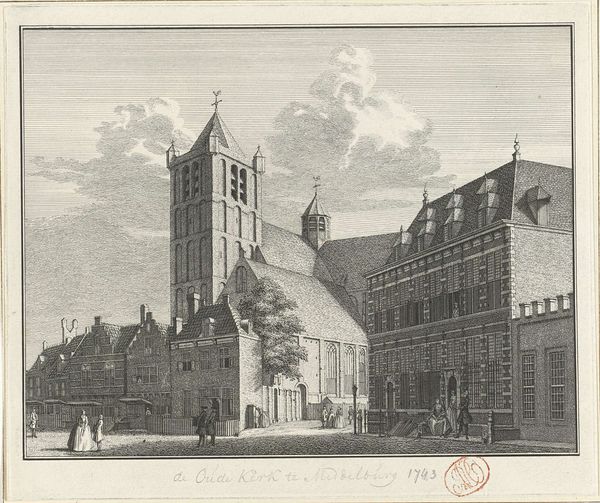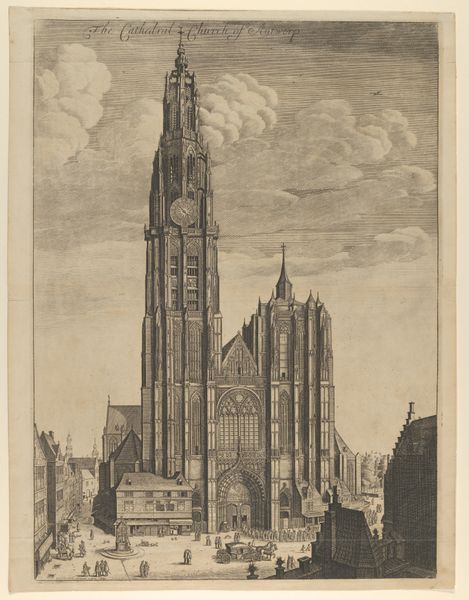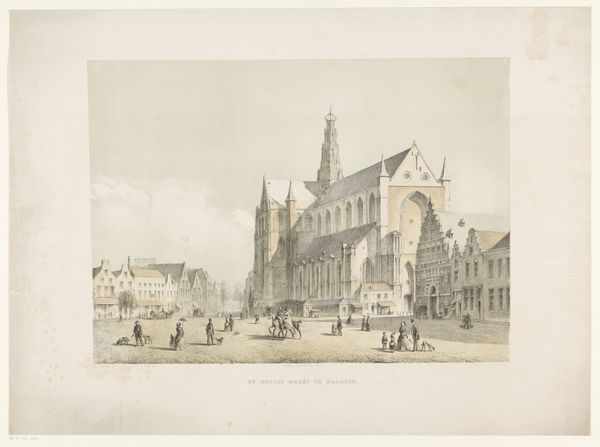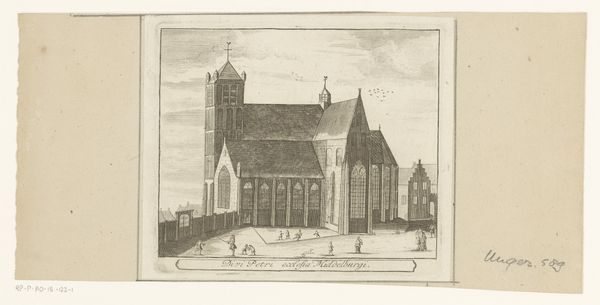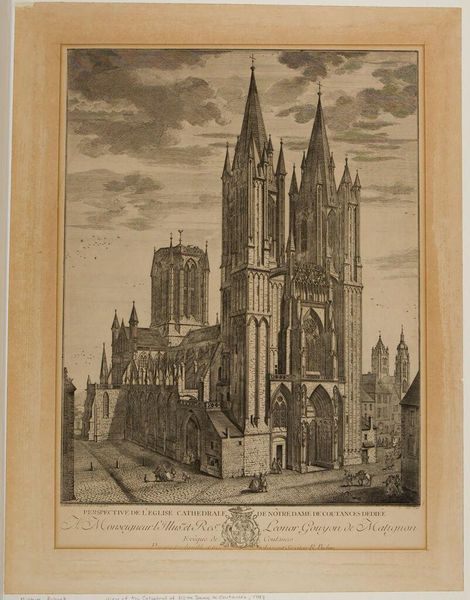
drawing, print, engraving
#
drawing
#
aged paper
#
toned paper
#
baroque
#
dutch-golden-age
#
parchment
#
mechanical pen drawing
# print
#
old engraving style
#
sketch book
#
personal sketchbook
#
pen-ink sketch
#
pen work
#
cityscape
#
storyboard and sketchbook work
#
engraving
Dimensions: height 181 mm, width 243 mm
Copyright: Rijks Museum: Open Domain
Editor: Here we have Romeyn de Hooghe's "View of the Grote or St. Bavo Church in Haarlem," made between 1688 and 1689. It's an engraving on paper, and the level of detail is just astounding. What strikes you most about it? Curator: The etching process itself. Think about the labor involved in creating this image: the careful, precise movements to render this complex architectural view. Also consider the distribution of these prints - it wasn't about "high art," but mass production, allowing widespread access to this image of Haarlem's prominent church. It connects the artistry directly to material consumption. Editor: So, the *process* of making the art is almost more significant than the art itself? Curator: Not necessarily more significant, but equally so. The paper's age, the precise lines achieved through engraving – these are crucial. What kind of ink, what tools? Each of these choices reflects a particular method, skill set, and therefore a whole network of manufacture and distribution. What about the scene? Why the crowds in the foreground, or the building obscuring the lower facade? Editor: I guess I hadn’t considered them as part of that production network. I was focusing more on the kind of story they might tell, the events taking place at the cathedral. Curator: Precisely. De Hooghe’s print isn’t simply about depicting a building, it’s about constructing a commodity, made available to diverse social strata through specific methods of production, and also influencing people through a deliberate composition showing the church. It shows the labor behind every single line. Editor: That's fascinating, how labor is embedded in this kind of artwork! I never thought about engravings in that way, as accessible commodities, not just artistic pieces. Curator: Seeing art this way really reframes the way we view it. Editor: It does, totally!
Comments
No comments
Be the first to comment and join the conversation on the ultimate creative platform.
